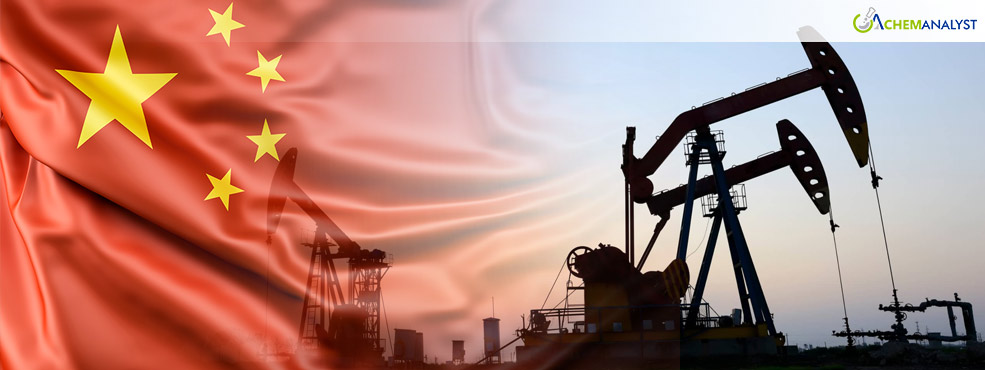Welcome To ChemAnalyst

Oil prices rose on Wednesday, fuelled by optimism after China announced a looser monetary policy to boost economic growth. As the world's largest crude importer, any recovery in China's economy is seen as a key driver for global oil demand. The Chinese government's plan to adopt an "appropriately loose" policy in 2025 has sparked hopes that this could lead to increased oil consumption, providing support to global oil prices.
The impact on the oil industry is significant. As one of the largest players in the energy market, China’s economic health plays a critical role in determining oil prices. A robust recovery in China, spurred by the looser monetary policy, would mean increased industrial activity, higher transportation demand, and greater energy consumption—all factors that drive up the need for crude oil. The global oil market closely monitors these signals, and the recent price uptick reflects market optimism that China’s economic strategies could provide a much-needed boost to crude consumption.
The price gains in Brent crude and U.S. West Texas Intermediate (WTI) futures reflect this renewed optimism, with both benchmarks edging higher. However, the price surge is still somewhat tempered, as traders remain cautious.
For the oil industry, the loosening of China’s monetary policy could help alleviate some of the challenges posed by a global slowdown. Increased demand from China could drive higher prices, benefiting oil-producing nations and companies. This is particularly important for countries like Saudi Arabia and Russia, whose economies are highly dependent on oil exports. A surge in demand from China would help balance out global supply-demand dynamics and ease concerns over an oversupply of crude in the market.
However, the industry faces challenges beyond China’s policy shift. In the U.S., recent data from the American Petroleum Institute indicated a rise in crude and fuel inventories. While this suggests that the oil supply is increasing, it could also signal a slowdown in consumption within the U.S., the second-largest oil consumer in the world. Higher inventories in the U.S. could potentially offset some of the demand from China, complicating the global supply-demand picture and keeping a lid on price increases.
The impact of these developments on the oil industry is also tied to broader economic and geopolitical factors. Mukesh Sahdev, head of oil at a leading industry firm, cautioned that while China’s policy measures could mitigate further downside risks, they might not be enough to counter other uncertainties, particularly global trade tensions. With U.S. President-elect Donald Trump proposing new trade measures, the oil market could face additional volatility, particularly if these policies affect oil supply chains or trade flows.
Moreover, the oil industry remains deeply impacted by environmental concerns, regulatory changes, and the global transition toward renewable energy. While the short-term outlook may benefit from a potential uptick in demand, the industry is facing mounting pressure to adapt to a future in which oil consumption could slow due to the rise of alternative energy sources and stricter climate policies.
In conclusion, China’s shift toward a looser monetary policy has reignited hopes for stronger oil demand, particularly in the Asian market. This could provide a much-needed boost to the global oil industry, especially for major oil producers and exporters. However, the industry must navigate a complex landscape of fluctuating inventories, geopolitical uncertainties, and the growing focus on sustainable energy. As traders await more concrete policy details and data from both China and the U.S., oil prices and the industry’s future trajectory remain subject to ongoing challenges and volatility.
We use cookies to deliver the best possible experience on our website. To learn more, visit our Privacy Policy. By continuing to use this site or by closing this box, you consent to our use of cookies. More info.
